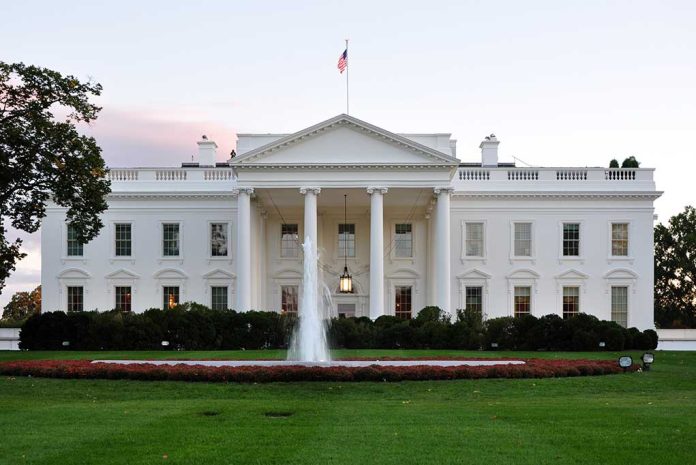
The Biden administration’s strategy aims to lower seniors’ prescription drug premiums, raising questions about its long-term economic impact.
At a Glance
- The Biden administration announced lower average monthly premiums for prescription drugs for older Americans next year.
- Billions of dollars in subsidies for insurers were used to achieve this reduction.
- The move was aimed at avoiding higher costs for voters before the presidential election.
- Republicans criticized the offset plan as a political maneuver and argued it would only provide temporary relief.
Lower Monthly Premiums for Seniors
The Biden administration has introduced measures that promise to reduce prescription drug premiums for seniors next year. This reduction was achieved by using billions of dollars in subsidies for insurers from a Medicare trust fund.
This intervention comes in response to anticipated rate hikes stemming from policies in the Inflation Reduction Act. The administration aims to mitigate these increases and provide immediate relief for older Americans.
Today, the Biden-Harris Administration is announcing tools to lower Rx drug costs & expand eligibility for the Extra Help Program, providing seniors & people with disabilities help paying for their #Medicare Part D premiums & cost-sharing. Fact Sheet: https://t.co/PK0CDlY3gN
— HHS.gov (@HHSGov) June 12, 2023
Political Ramifications and Criticism
The Biden administration’s plan seeks to avoid higher costs for voters right before the upcoming presidential election. Critics argue that the timing and methods suggest a strategic move aimed at political gains rather than long-term economic stability.
“The administration came up with this Part D demo in order to shovel billions of dollars more into the program to mask the huge premium increases that would be coming next year without it,” Joe Grogan, a senior White House official under former President Donald J. Trump, said in an interview.
Republicans have also questioned the legal basis of using federal funds for this purpose, arguing that it provides only temporary relief and doesn’t offer a sustainable solution to rising drug costs. The measure has faced significant pushback from conservative lawmakers who see it as a short-term fix with potentially long-term fiscal consequences.
President Biden has built on the Affordable Care Act by:
🩺Locking in lower health insurance premiums for millions of Americans
💉Capping monthly insulin costs at $35 for seniors on Medicare
💊Giving Medicare the power to negotiate lower drug prices— The White House (@WhiteHouse) March 23, 2023
Economic Implications
The Congressional Budget Office estimates that the drug pricing provisions in the Inflation Reduction Act could save Medicare $98.5 billion over ten years. The Act includes measures such as a $2,000 cap on out-of-pocket spending for Medicare beneficiaries beginning in 2025.
“The Biden-Harris administration is taking additional steps that I fully support to keep premiums stable as insurance companies learn how to be competitive in this market,” stated Senate Finance Committee Chair Ron Wyden.
Proponents argue that these changes will help stabilize the Medicare Part D market. The federal government’s negotiation of drug prices, starting in 2026, is another significant step aimed at controlling prescription costs. These negotiations will impact high-spending Medicare Part B and Part D drugs.
Conclusion
While the Biden administration’s plan to reduce prescription drug premiums for seniors aims to provide immediate financial relief, it raises concerns about long-term economic sustainability and potential political motivations. As the country moves closer to the presidential election, the effectiveness and legality of this strategy will likely remain hotly debated.
Sources
1. Biden Officials Stave Off Sticker Shock on Medicare Drug Premiums
2. Biden admin to spend billions to blunt spike in Medicare drug premiums









